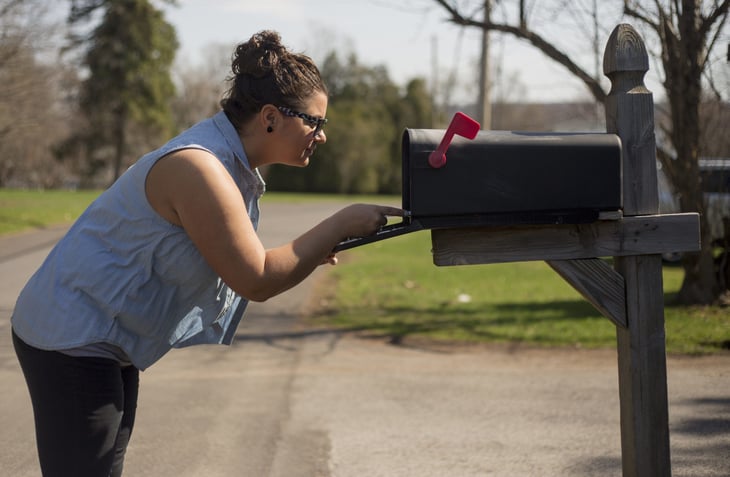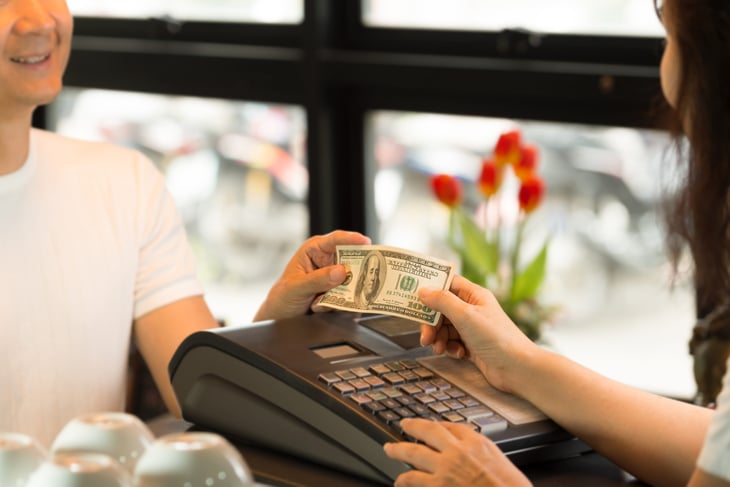
Retailers are exceptional at getting us to part with our hard-earned dollars — even for stuff we don’t need.
When your favorite store slashes prices or makes it all too easy to purchase something — hello, Amazon Prime — it may be understandable if you occasionally succumb to the instant gratification of an impulse buy.
But if your spending has gotten out of control or you’ve resolved to buy less, then these strategies can help.
1. Order groceries online

If you tend to go to the grocery store for specific items and end up stocking your cart with extras, going digital for a while might help you curb your spending.
When you order groceries online, whether you get them delivered or pick them up curbside, you can stick to just what’s on your list and eyeball the total before hitting “place order.”
Many grocers offer free pickup for online orders now. If you prefer to have your groceries delivered to your home, there are services like Instacart and Shipt. For more, take a look at “The 5 Best Grocery Delivery Services.”
2. Say ‘no’ to junk mail

Junk mail tends to come loaded with offers. If they tempt you to spend money, then your best bet is to unsubscribe.
There are multiple ways to opt out of direct mail, such as catalogs and marketing offers you receive by mail. We walk you through the process in “5 Ways to Put an End to Junk Mail.”
3. Log the purchases you don’t make

Bear with us here and try this one weird trick: Every time you consider buying something that is a want rather than a need, add it to a dedicated spreadsheet instead of buying it. Then, invest the money you would have spent.
Money Talks News President Dan Schointuch started this approach when the stock market tumbled during the pandemic and says it works for him.
“The act of ‘shopping’ and putting these products on a list sort of tricks my brain into investing more instead of spending,” he says.
4. Uninstall retailers’ apps

If you find yourself using your smartphone to make a ton of purchases, then uninstalling retailer apps can give your wallet (and your thumbs) a break. You’re probably less likely to buy something if you have to find a computer, log in and complete the purchase online.
5. Unsubscribe from retailers’ emails

Retailer newsletters are a great way to stay on top of sales and receive promotional discounts, but they also pose a major temptation to spend money. Next time you receive such an email, hit the “unsubscribe” button — which is usually found at the very bottom of the message, often in a tiny font.
And if you’re asked for an email address at a storefront or at an online checkout, simply don’t provide one.
6. Don’t save your credit card info online

Some retailers allow you to save your payment information within your online account, but this makes it easier to spend money.
Removing your payment info is not only safer — but it also means you have to do more work before you make a purchase. Unless you’ve memorized your credit card number, you’ll have to get up and track down your wallet before making each online purchase.
7. Pay with cash when possible

You may have heard that people tend to spend less when using cash — and there’s research to back it up. For example, the Federal Reserve Bank of San Francisco found that the average cash transaction was $39 versus $95 for noncash transactions in 2022.
Every time you have to open your wallet, count the money and hand over cash, it’s more painful than clicking a “purchase” button online or swiping a credit card.
This method may either help you avoid impulse buys altogether or at least spend less on your next errand.
8. Ignore urgent marketing messages

Have you ever seen a message like “limited-time offer” or “just two items left at this price” and felt the urge to buy it? The impulse may be attributed to the economic principle of scarcity, which basically says you’re more likely to buy something that’s less available.
When you see these urgent messages, give yourself a day or so to calm down. Leave the store, or leave the item in your shopping cart if you’re online. Once you come back to the item with a fresh perspective, you might decide to pass on the purchase altogether.
9. Get backup from an app

If the idea of giving yourself time to cool off is appealing, but you don’t want to wait a whole day — or just aren’t sure of your self-control — you have another option.
Apps like One Sec impose a mandatory delay before letting you into an app to make purchases, giving you a long, agonizing moment to rethink your decision.
For more, check out our story “These Apps Stop You From Throwing Away Money.”





Add a Comment
Our Policy: We welcome relevant and respectful comments in order to foster healthy and informative discussions. All other comments may be removed. Comments with links are automatically held for moderation.